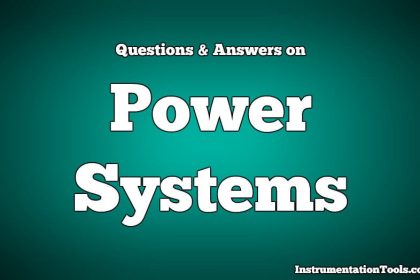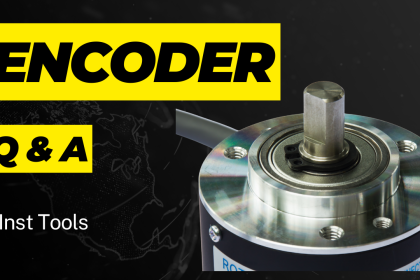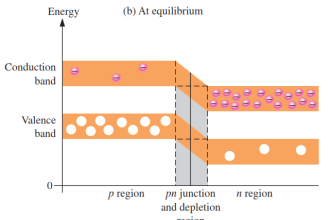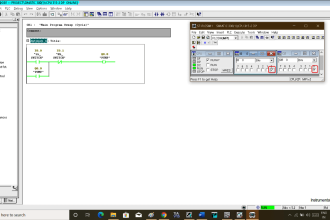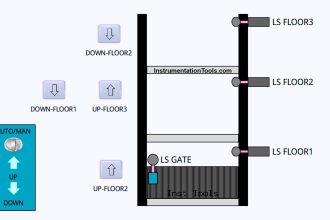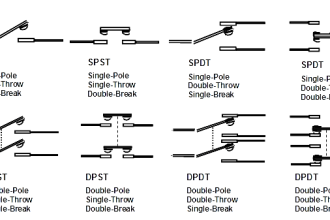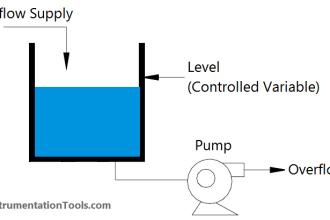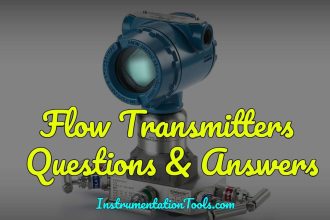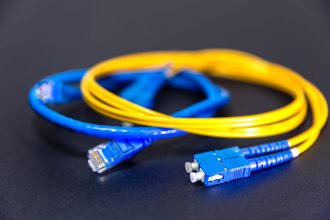Get ready for your electrical interview with this guide on MCB vs fuse. Understand the main differences and commonly asked questions for electrical and electronics engineers.
MCB vs Fuse Basic Questions
Watch the video below to test your knowledge of MCB and Fuse devices. You will get detailed explanations for each question in the video.
Question 1
What is the basic working principle of an MCB?
A. Hydraulic pressure
B. Mechanical relay
C. Magnetic and thermal tripping
D. Chemical reaction
Show the Answer
Magnetic and thermal tripping
Question 2
How does a fuse operate to protect an electrical circuit?
A. Uses a solenoid to trip
B. Melts its internal element
C. Changes its physical state
D. Activates a mechanical switch
Show the Answer
Melts its internal element
Question 3
How does an MCB differ from a fuse in terms of reusability?
A. Fuses are reusable; MCBs are not
B. Both are reusable
C. Neither are reusable
D. MCBs are reusable; fuses are not
Show the Answer
MCBs are reusable; fuses are not
Question 4
What is a significant advantage of MCBs over fuses in detection?
A. Fuses can detect only short circuits
B. MCBs provide clear tripping indication
C. MCBs can detect only overloads
D. Fuses provide clear tripping indication
Show the Answer
MCBs provide clear tripping indication
Question 5
Which is more reliable for long-term use, MCBs or fuses?
A. MCBs are more reliable
B. Neither are reliable
C. Both are equally reliable
D. Fuses are more reliable
Show the Answer
MCBs are more reliable
Question 6
How do MCBs and fuses compare in terms of response time?
A. Response times vary widely for both
B. MCBs have a faster response time
C. Both have similar response times
D. Fuses have a faster response time
Show the Answer
Fuses have a faster response time
Question 7
Which offers better protection against short circuits, MCBs or fuses?
A. Neither offers adequate short circuit protection
B. MCBs offer better short circuit protection
C. Fuses offer better short circuit protection
D. Both offer equal short circuit protection
Show the Answer
Fuses offer better short circuit protection
Question 8
Which device is more cost-effective in the long run, MCB or fuse?
A. Neither is cost-effective
B. Both are equally cost-effective
C. Fuses due to low initial cost
D. MCBs due to reusability
Show the Answer
MCBs due to reusability
Question 9
How do MCBs and fuses differ in terms of thermal stability?
A. Fuses offer better thermal stability
B. Neither offers thermal stability
C. MCBs offer better thermal stability
D. Both offer equal thermal stability
Show the Answer
MCBs offer better thermal stability
Question 10
In terms of maintenance, how do MCBs and fuses compare?
A. Neither requires maintenance
B. Both require the same maintenance
C. Fuses require more maintenance
D. MCBs require more maintenance
Show the Answer
Fuses require more maintenance
Question 11
Which device provides more precise protection settings?
A. Both provide equally precise protection
B. MCBs due to adjustable settings
C. Fuses due to their fixed nature
D. Neither provides precise protection
Show the Answer
MCBs due to adjustable settings
Question 12
How do the safety features of MCBs compare to fuses?
A. MCBs have fewer safety features
B. Fuses have advanced safety features
C. MCBs have advanced safety features
D. Fuses have more safety features
Show the Answer
MCBs have advanced safety features
Question 13
In what aspect do fuses outperform MCBs in certain applications?
A. Reusability
B. Reset capability
C. Cost
D. Adjustable settings
Show the Answer
Cost
Question 14
In terms of environmental impact, which is better, MCBs or fuses?
A. Fuses due to lower production footprint
B. Neither is environmentally friendly
C. Both have similar environmental impact
D. MCBs due to longer lifespan
Show the Answer
MCBs due to longer lifespan
Question 15
How does the installation process of MCBs compare to that of fuses?
A. MCBs are easier to install
B. Both have equally complex installations
C. Fuses are easier to install
D. Neither is easy to install
Show the Answer
MCBs are easier to install
Question 16
How do the response characteristics of MCBs compare to those of fuses?
A. Neither device responds quickly
B. MCBs and fuses respond at the same speed
C. Fuses have a delayed response
D. MCBs have a delayed response
Show the Answer
MCBs have a delayed response
Question 17
What is a practical advantage of using MCBs in industrial applications?
A. Faster response to overloads
B. Lower initial cost
C. Adjustable tripping settings
D. Ability to handle higher fault currents
Show the Answer
Adjustable tripping settings
Question 18
How does the reset capability of MCBs enhance their usability?
A. Allows for quick restoration of power
B. Reduces the need for additional protection devices
C. Provides better visual indicators
D. Ensures higher breaking capacity
Show the Answer
Allows for quick restoration of power
Question 19
Why might fuses still be used despite the advantages of MCBs?
A. Better for high-voltage applications
B. Higher breaking capacity
C. Lower cost and simplicity
D. More reliable in all conditions
Show the Answer
Lower cost and simplicity
Question 20
How does the physical size of MCBs compare to fuses?
A. MCBs are generally larger
B. Neither has a standardized size
C. Both have similar sizes
D. Fuses are generally larger
Show the Answer
MCBs are generally larger
Question 21
How does the trip curve flexibility of MCBs compare to fuses?
A. Fuses offer adjustable trip curves
B. Neither offers adjustable trip curves
C. Both offer adjustable trip curves
D. MCBs offer adjustable trip curves
Show the Answer
MCBs offer adjustable trip curves
Question 22
Which device generally requires more inventory management, MCBs or fuses?
A. MCBs
B. Neither requires inventory management
C. Both require the same level of management
D. Fuses
Show the Answer
Fuses
Question 23
How do MCBs and fuses compare in terms of response to transient currents?
A. Both handle transient currents equally well
B. MCBs handle transient currents better
C. Fuses handle transient currents better
D. Neither handles transient currents effectively
Show the Answer
Fuses handle transient currents better
Question 24
How does the physical construction of MCBs compare to fuses?
A. Fuses have a more complex construction
B. MCBs have a more complex construction
C. Both have similar physical construction
D. Neither has a complex construction
Show the Answer
MCBs have a more complex construction
Question 25
How do MCBs and fuses differ in terms of response to gradual overloads?
A. Fuses handle gradual overloads better
B. MCBs handle gradual overloads better
C. Both handle gradual overloads equally well
D. Neither handles gradual overloads effectively
Show the Answer
MCBs handle gradual overloads better
Question 26
In terms of operational noise, how do MCBs compare to fuses?
A. MCBs are noisier
B. Neither generates operational noise
C. Both generate the same level of noise
D. Fuses are noisier
Show the Answer
MCBs are noisier
Question 27
How do MCBs and fuses differ in terms of their impact on system downtime?
A. Neither impacts system downtime
B. MCBs reduce system downtime
C. Fuses reduce system downtime
D. Both have the same impact on system downtime
Show the Answer
MCBs reduce system downtime
Question 28
Which device offers better integration with remote monitoring systems, MCBs or fuses?
A. Both offer equal integration
B. Fuses offer better integration
C. Neither integrates well with remote monitoring
D. MCBs offer better integration
Show the Answer
MCBs offer better integration
Question 29
How does the response time of MCBs compare to fuses in detecting overloads?
A. Fuses have a faster response time
B. Neither responds quickly
C. Both have similar response times
D. MCBs have a faster response time
Show the Answer
Fuses have a faster response time
Question 30
What is a major disadvantage of using MCBs compared to fuses?
A. Higher initial cost
B. Slower response to short circuits
C. Lack of reusability
D. Lower breaking capacity
Show the Answer
Higher initial cost
Question 31
How does the response to short circuits differ between MCBs and fuses?
A. Both respond at the same speed
B. MCBs respond faster
C. Neither responds quickly
D. Fuses respond faster
Show the Answer
Fuses respond faster
Question 32
What is a disadvantage of fuses in terms of long-term use?
A. Difficult to install
B. Higher maintenance due to replacement needs
C. Complex operational mechanism
D. Limited availability
Show the Answer
Higher maintenance due to replacement needs
Question 33
How does the magnetic trip function in an MCB work?
A. Relies on hydraulic pressure
B. Uses a chemical reaction
C. Activates a solenoid with high current
D. Changes the physical state of the material
Show the Answer
Activates a solenoid with high current
Question 34
What is a key disadvantage of fuses in terms of system downtime?
A. They require resetting
B. They blow too slowly
C. They need to be replaced when blown
D. They cannot handle high currents
Show the Answer
They need to be replaced when blown
Question 35
How does the design complexity of MCBs compare to fuses?
A. Neither has a complex design
B. Fuses have a simpler design
C. Both have equally complex designs
D. MCBs have a simpler design
Show the Answer
Fuses have a simpler design
Question 36
What is a disadvantage of using MCBs in terms of physical size?
A. They are too small for high currents
B. They require additional cooling systems
C. They are difficult to install
D. They are larger and take up more space
Show the Answer
They are larger and take up more space
Question 37
What is the impact of the thermal element in an MCB on its tripping time?
A. It causes an instant trip
B. It delays the tripping
C. It prevents the MCB from tripping
D. It has no impact on tripping time
Show the Answer
It delays the tripping
Question 38
What is a common limitation of fuses in high-power applications?
A. They have a high initial cost
B. They are too large for compact systems
C. They are difficult to install
D. They cannot be reset
Show the Answer
They cannot be reset
Question 39
What disadvantage does the complexity of MCBs introduce compared to fuses?
A. Increased risk of failure
B. Reduced durability
C. Inability to handle high currents
D. Higher cost and potential for mechanical issues
Show the Answer
Higher cost and potential for mechanical issues
Question 40
What is a significant disadvantage of fuses regarding selective coordination?
A. They lack selectivity in tripping
B. They require frequent adjustments
C. They are too expensive for large systems
D. They offer too much coordination
Show the Answer
They lack selectivity in tripping
Read Next:
- Power System Protection Questions
- Difference Between MCB and MCCB
- Automatic Motor START and STOP
- Power System Protection Questions
- Electrical Engineer Objective Questions


